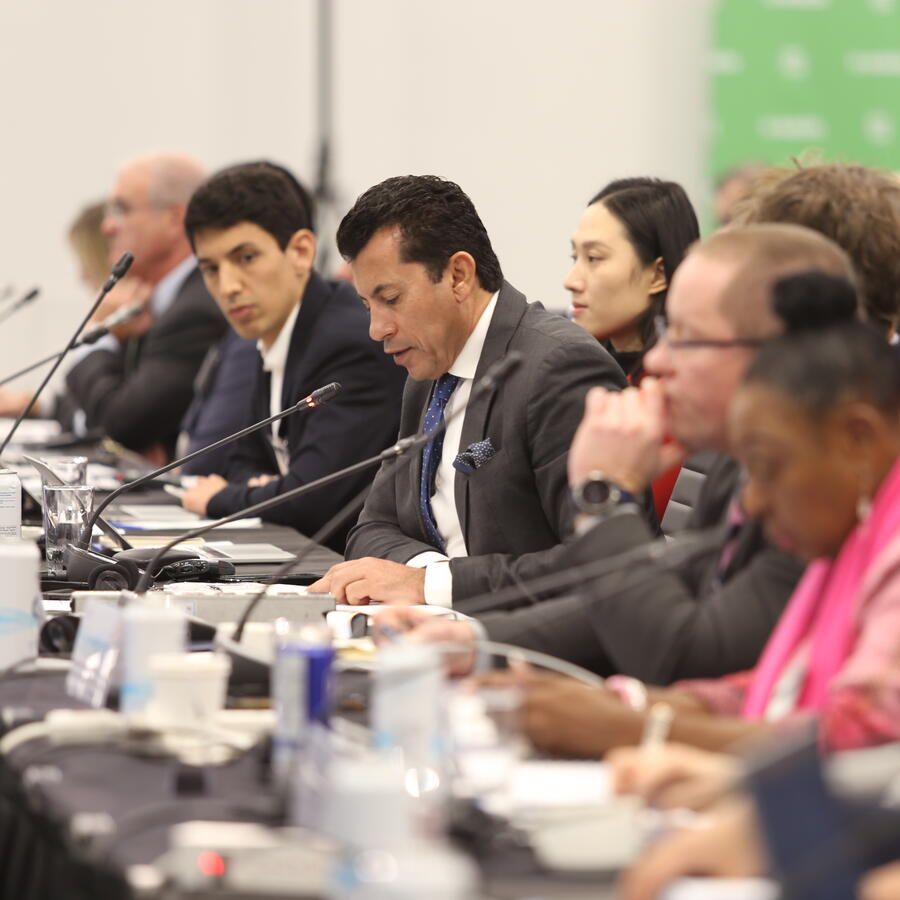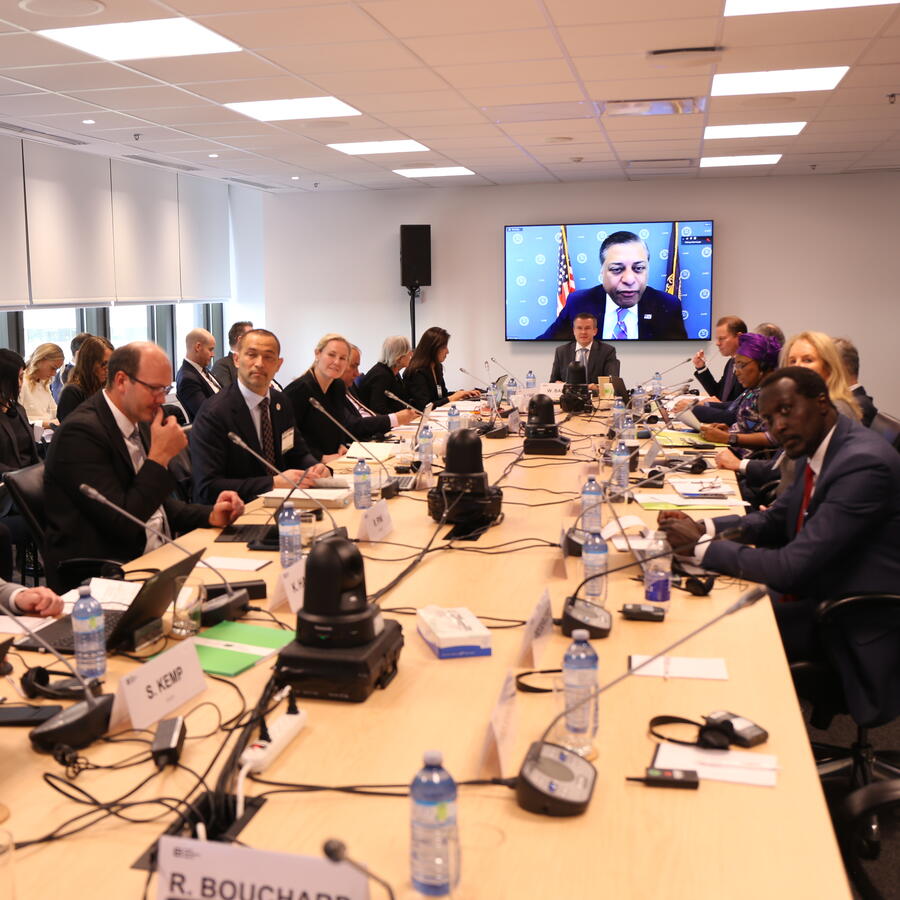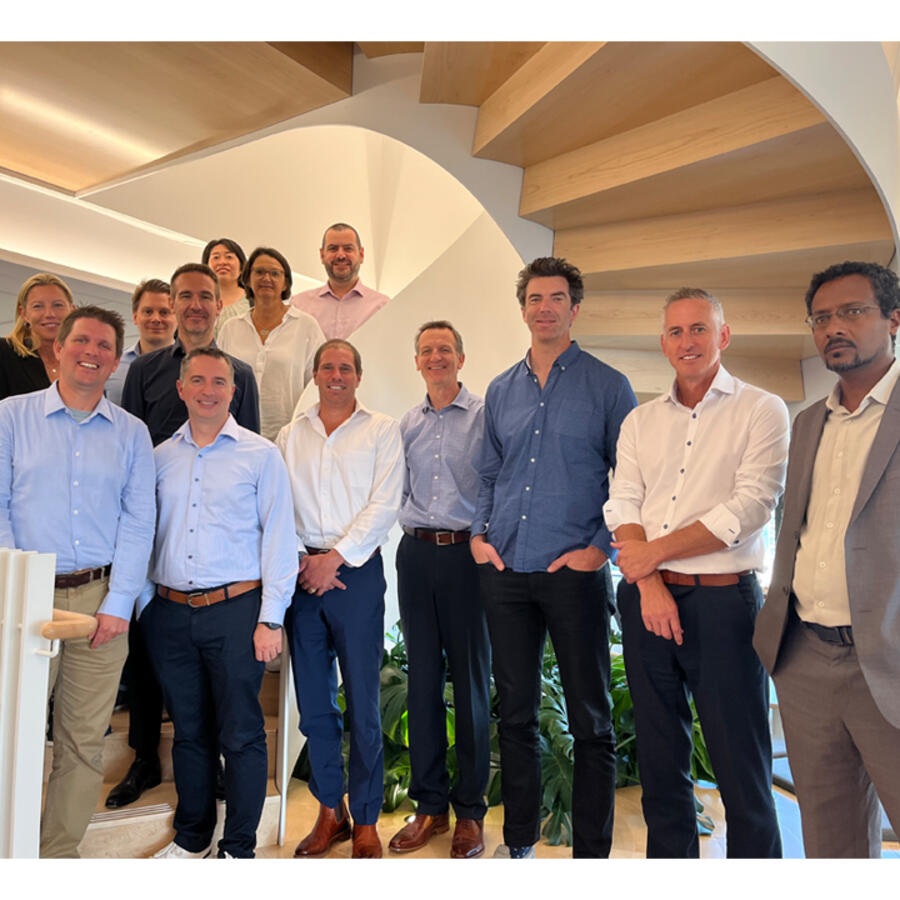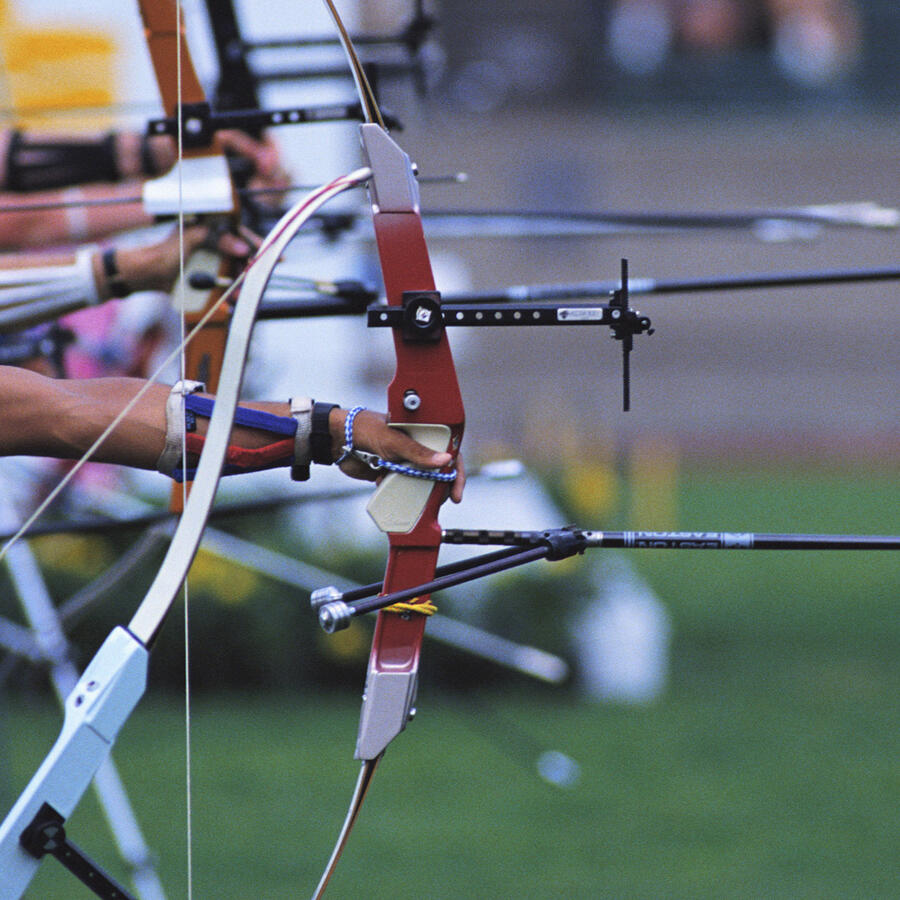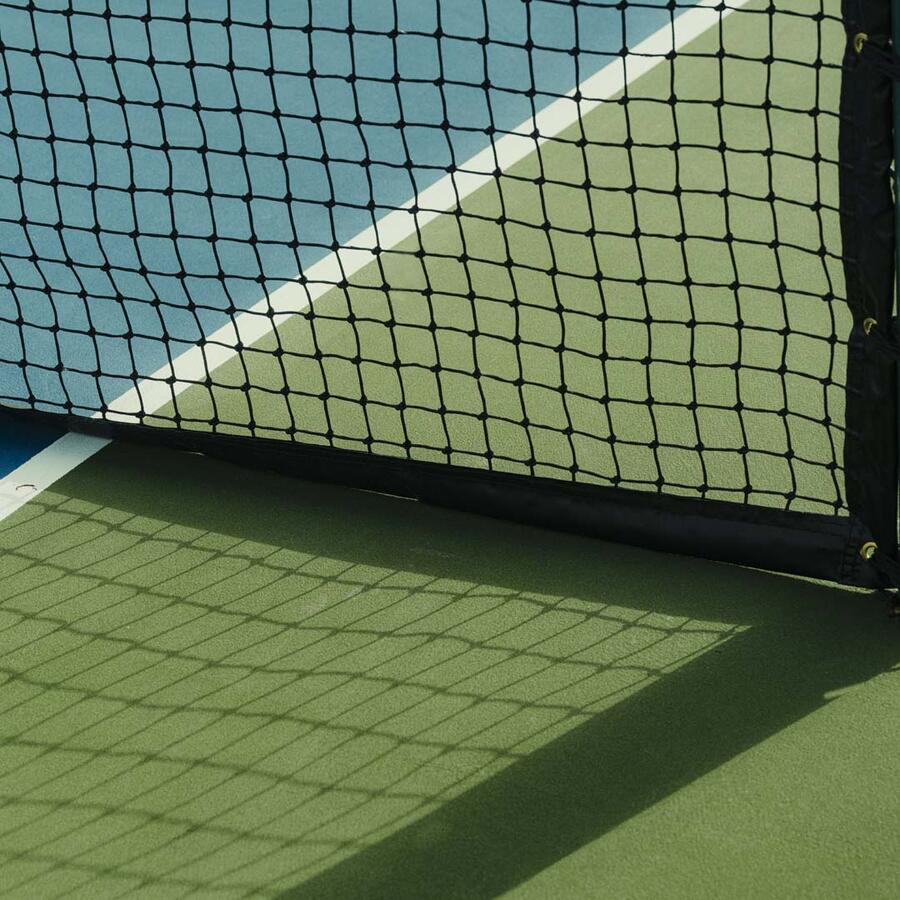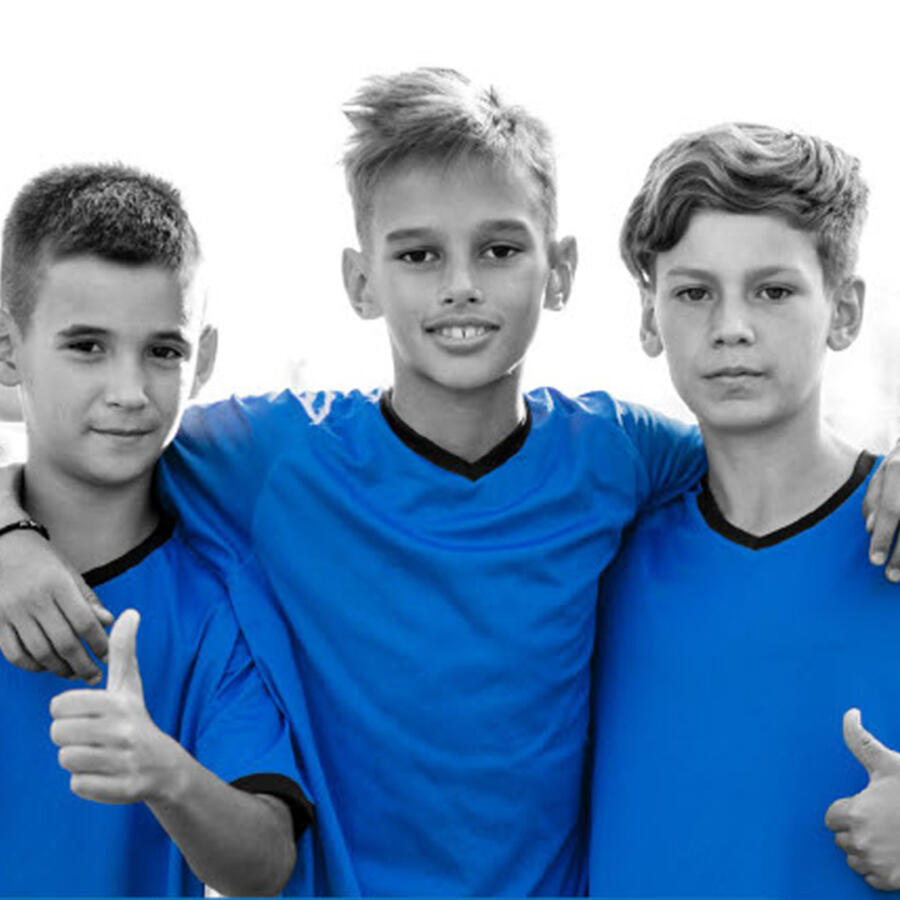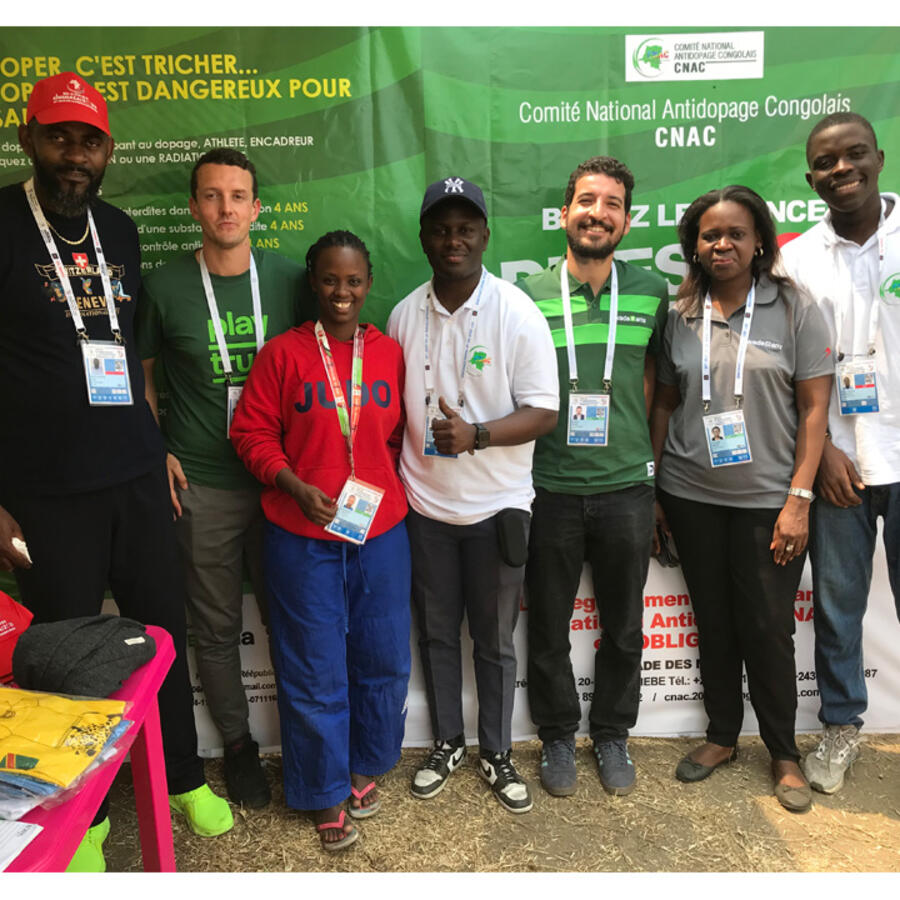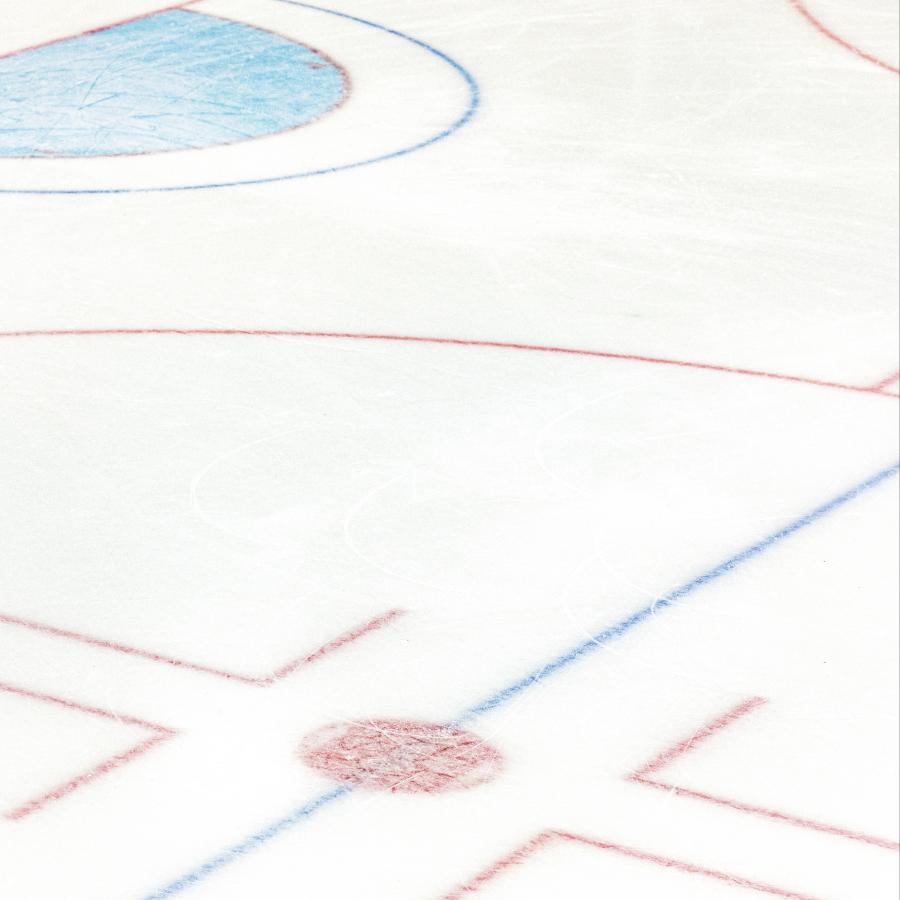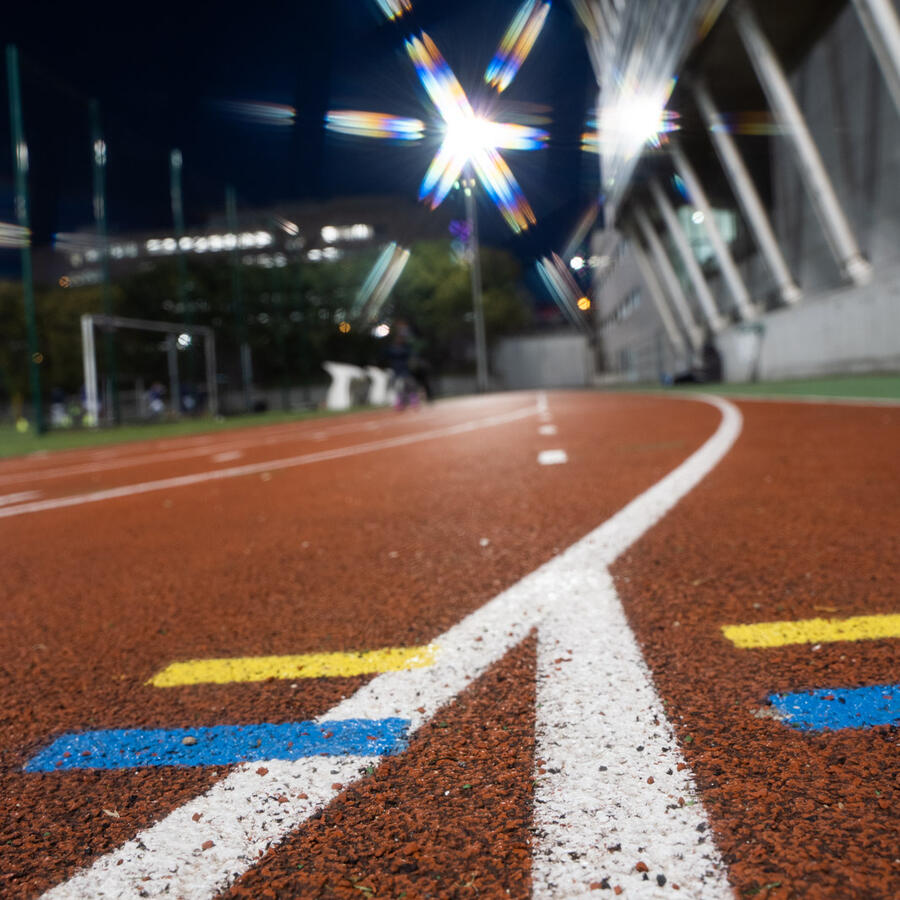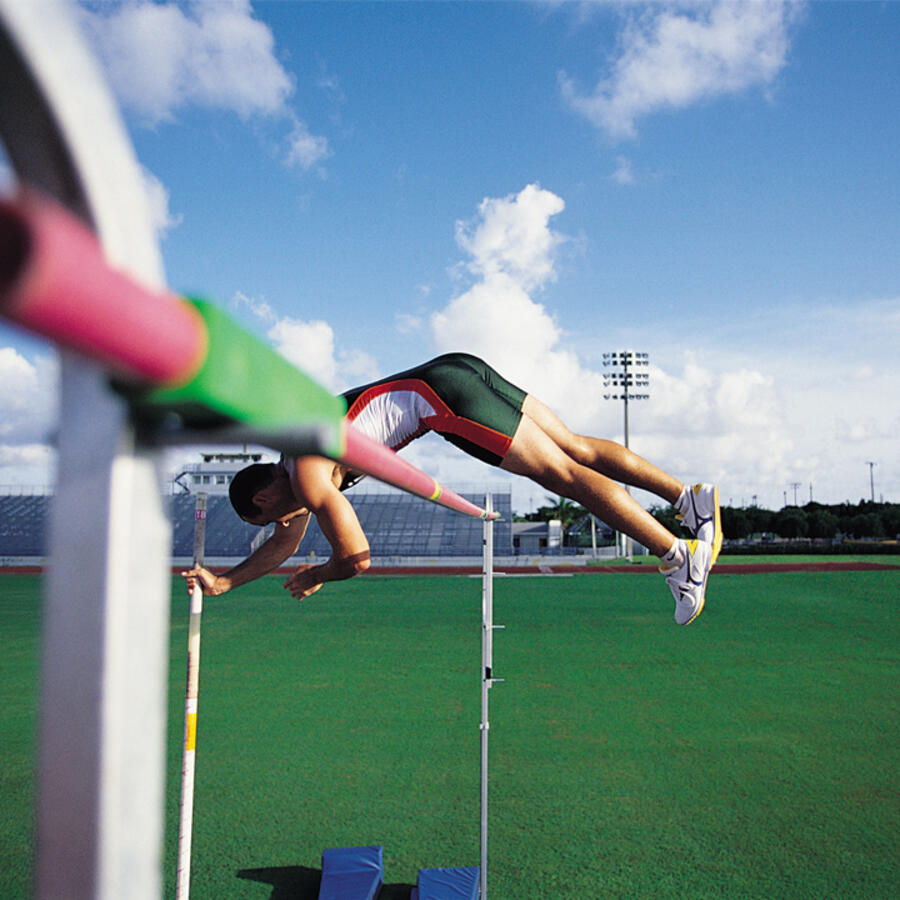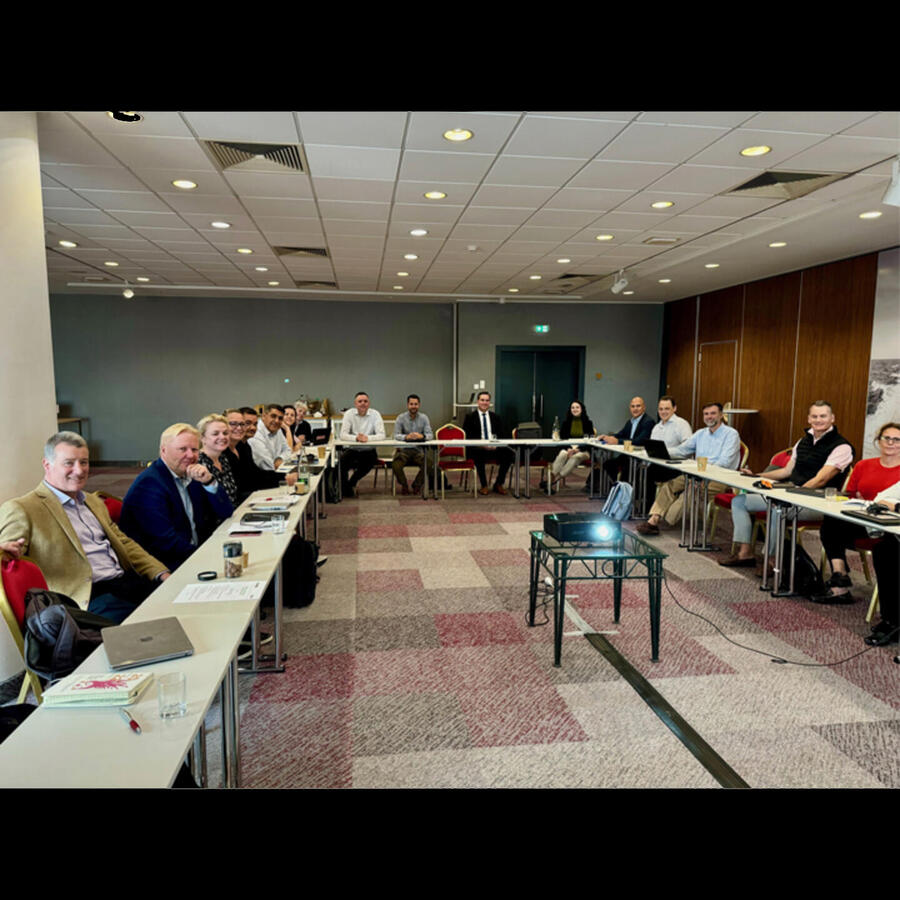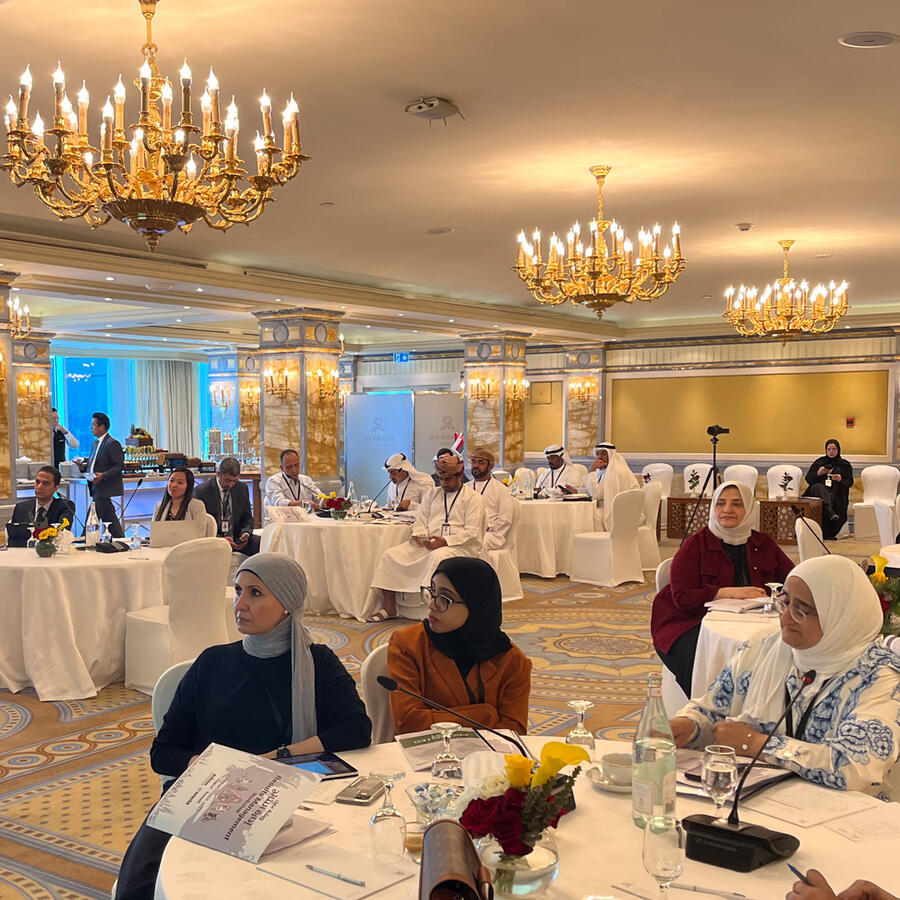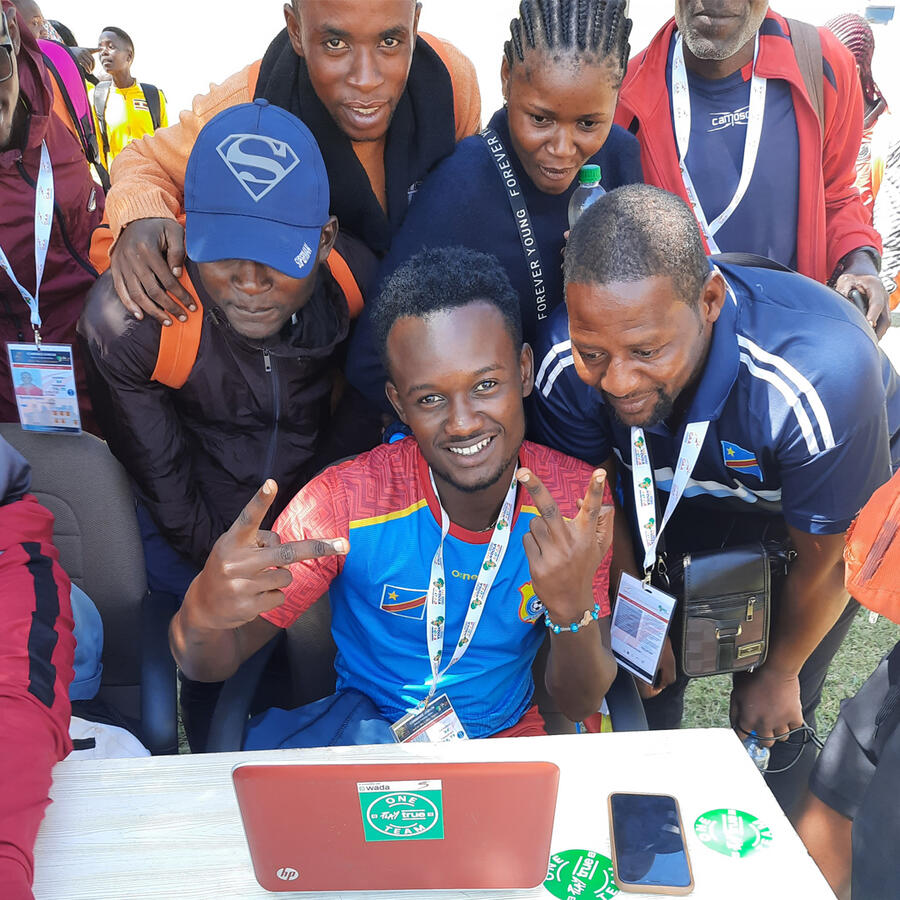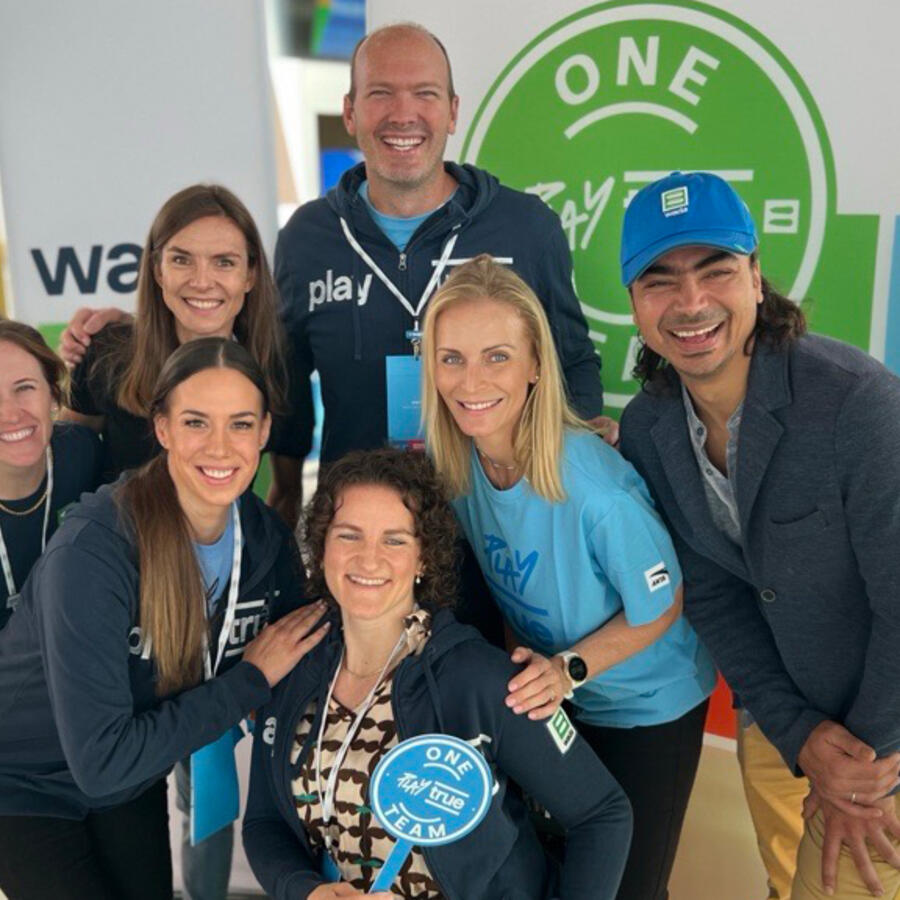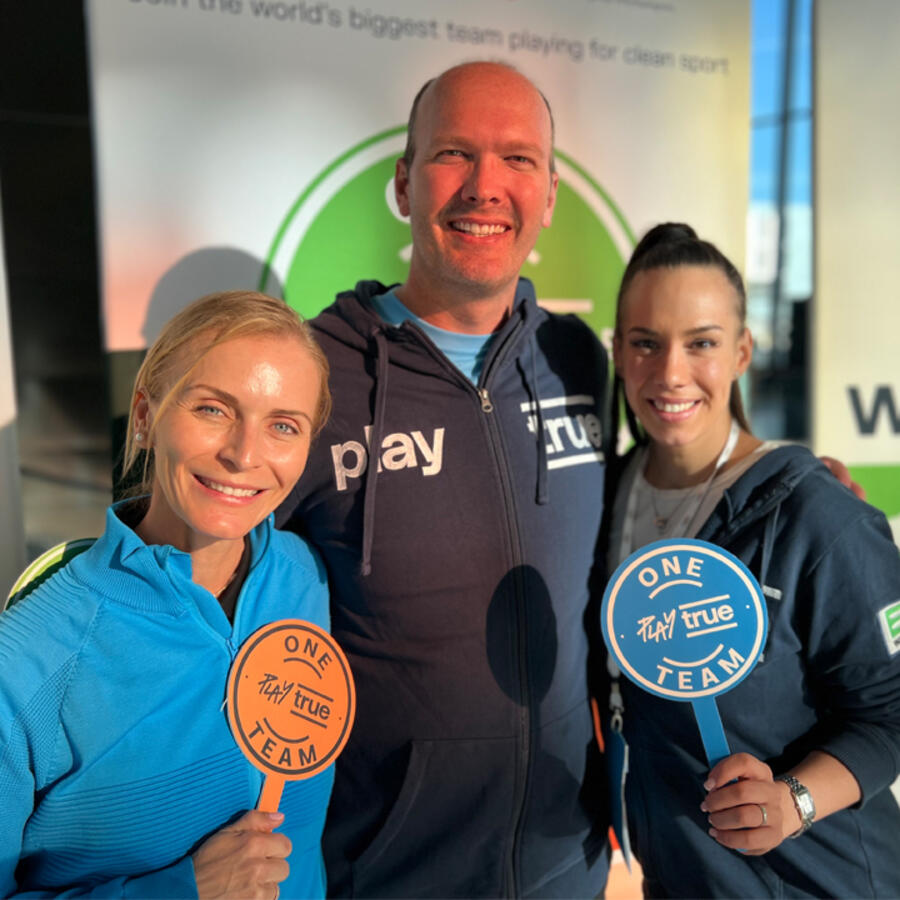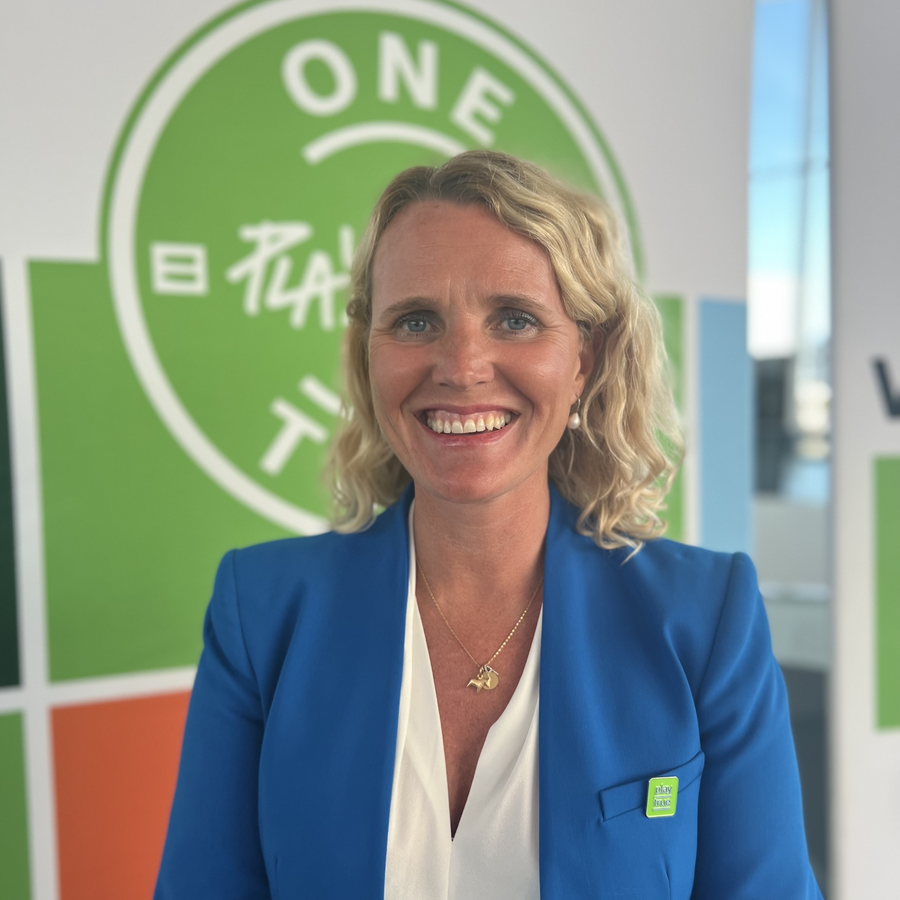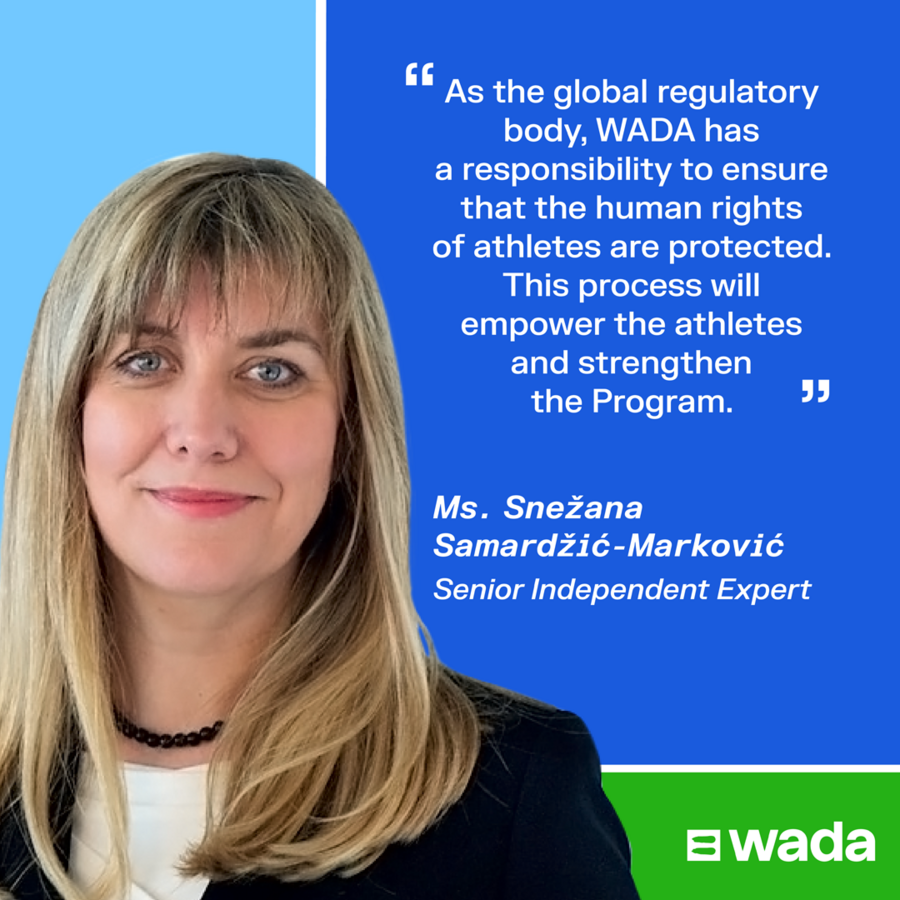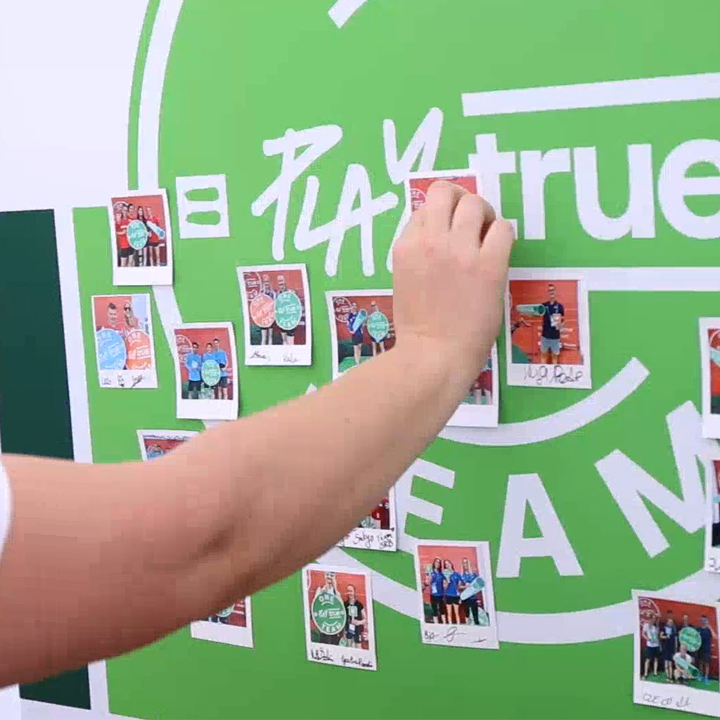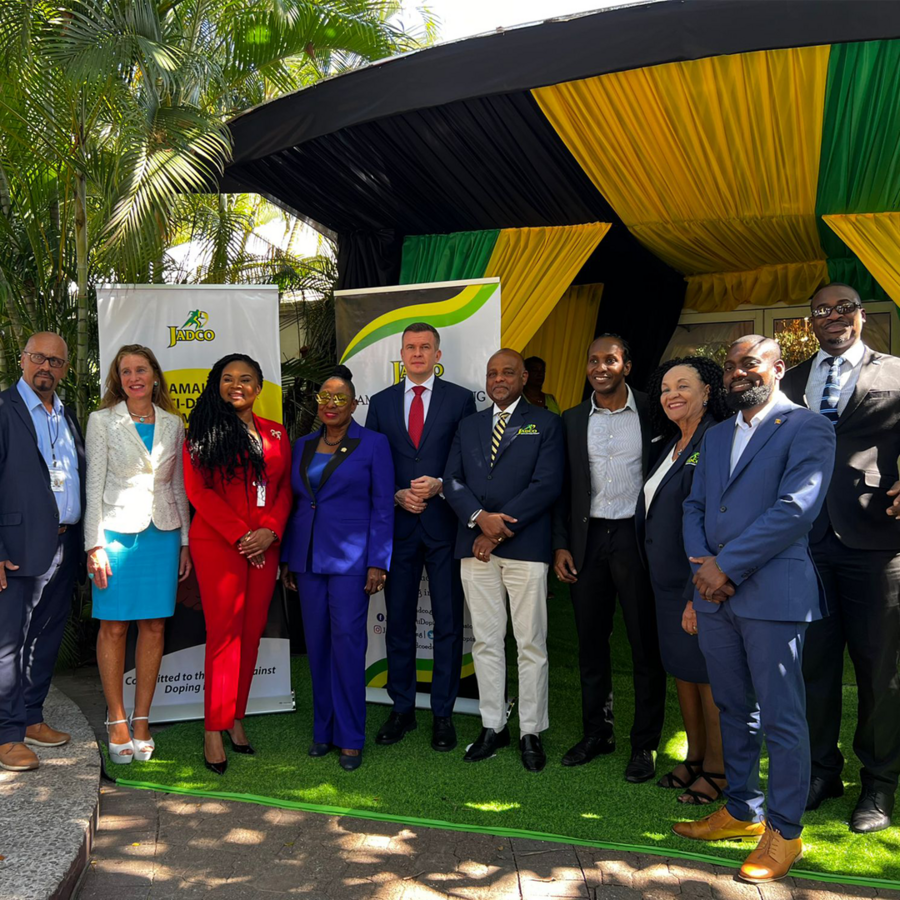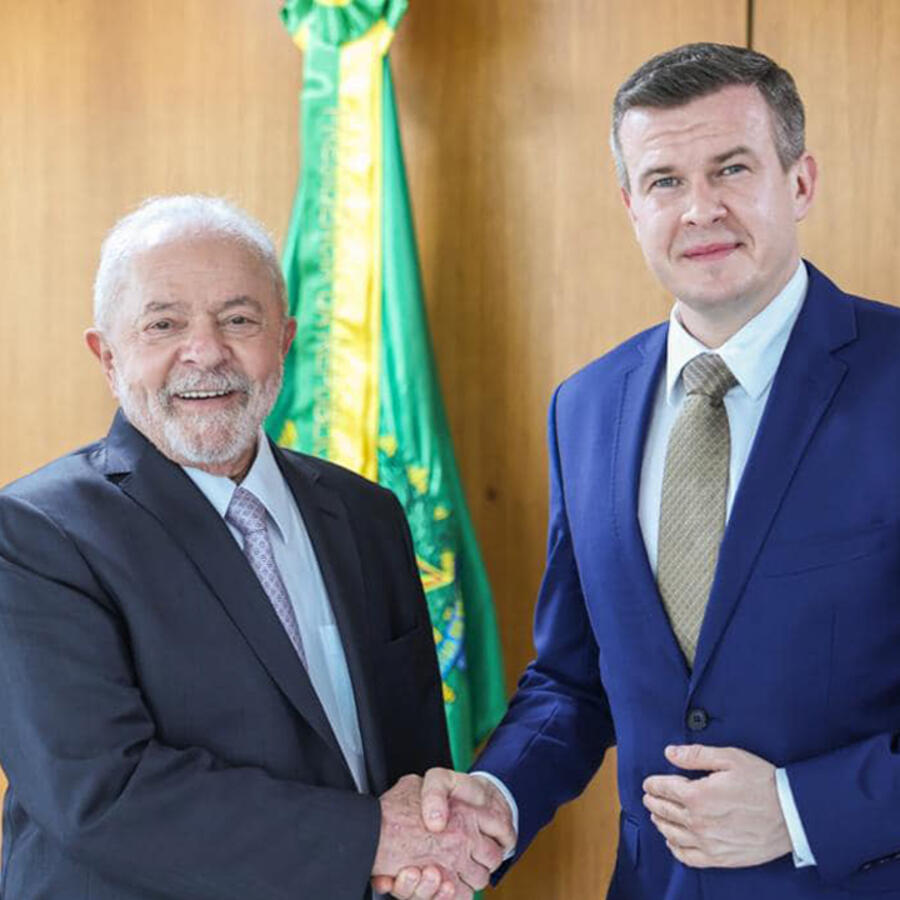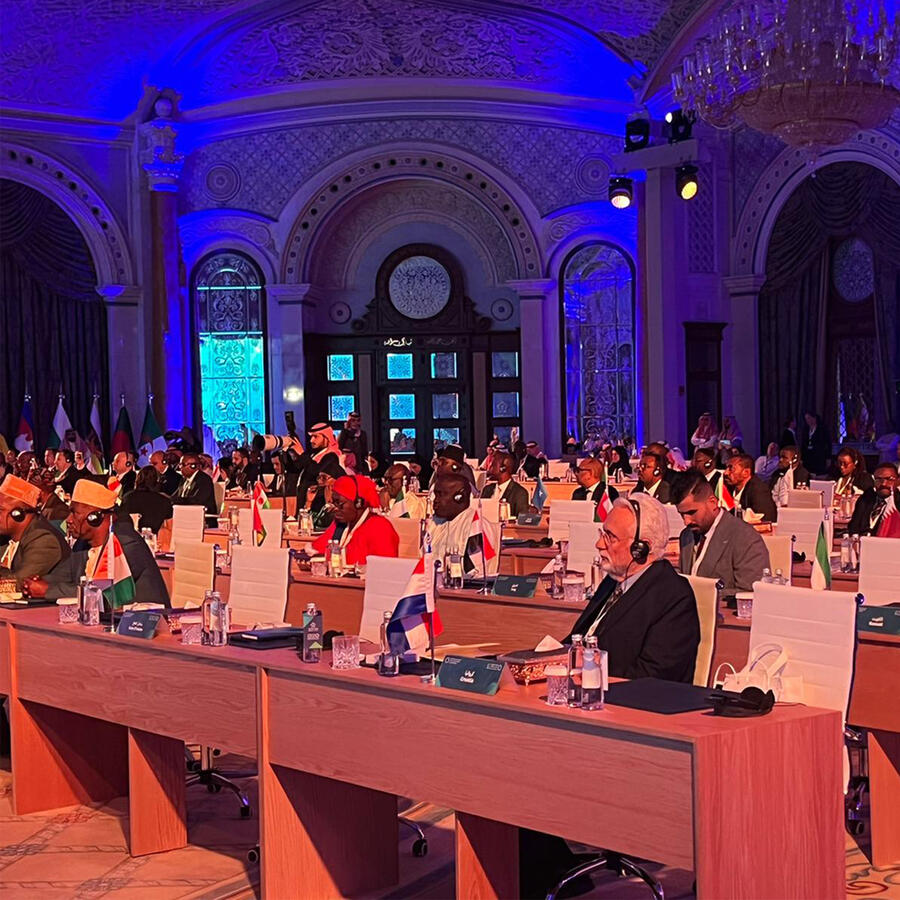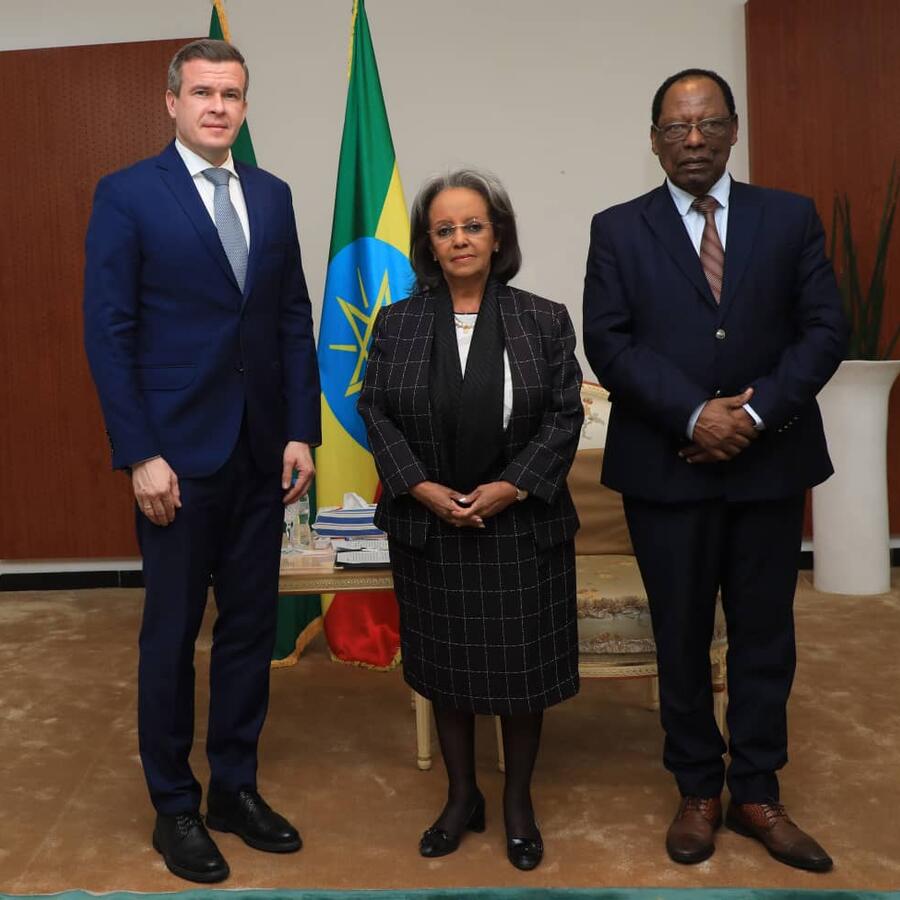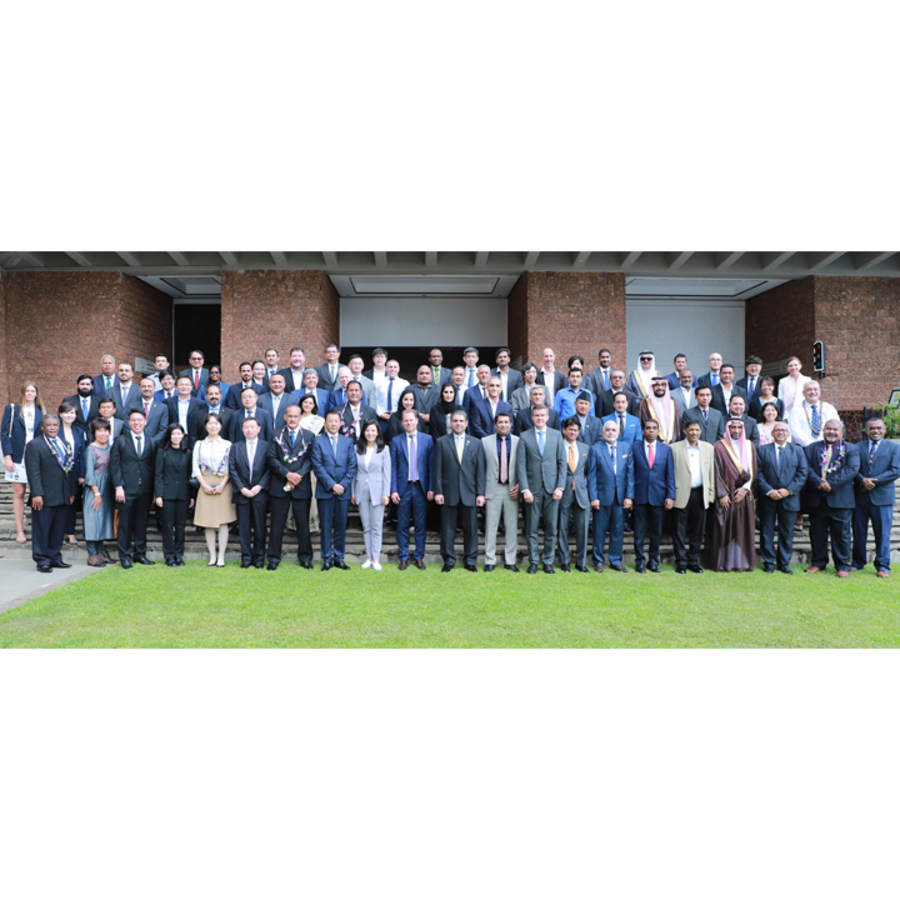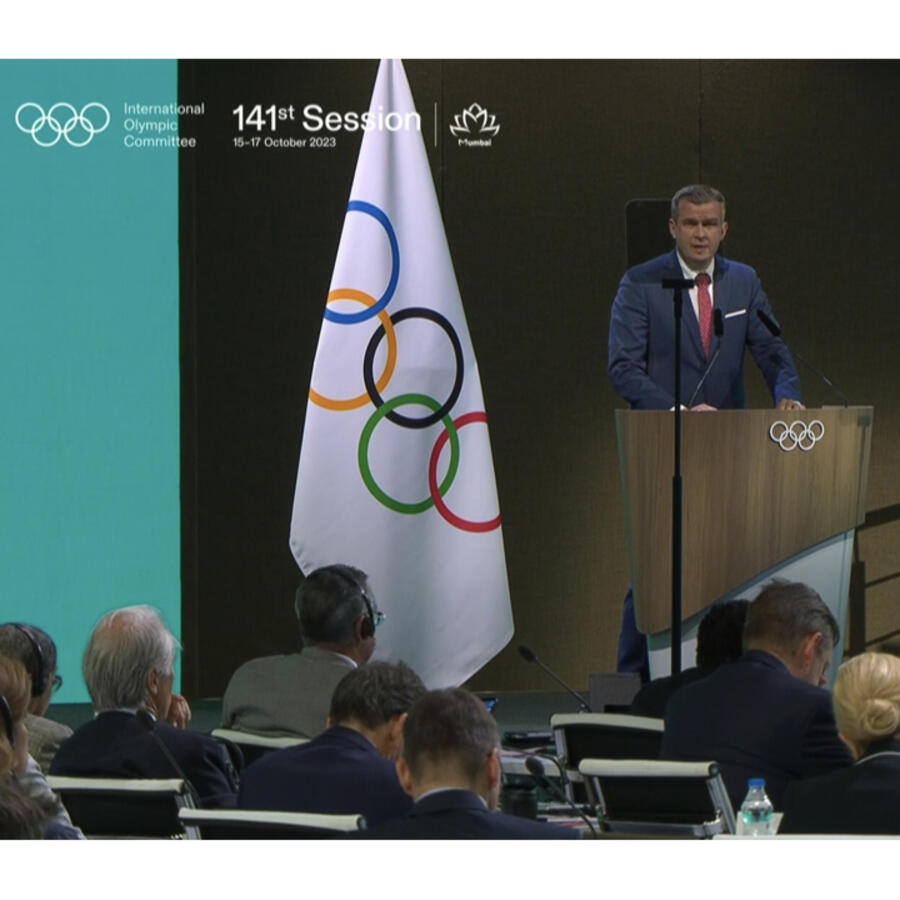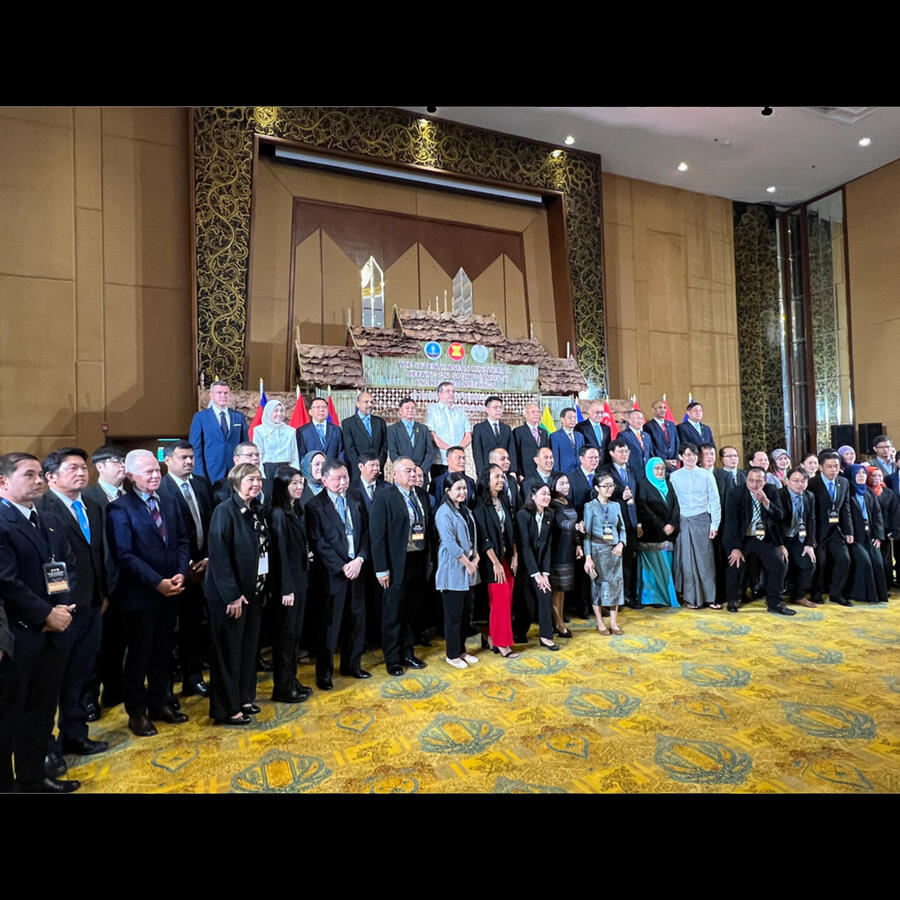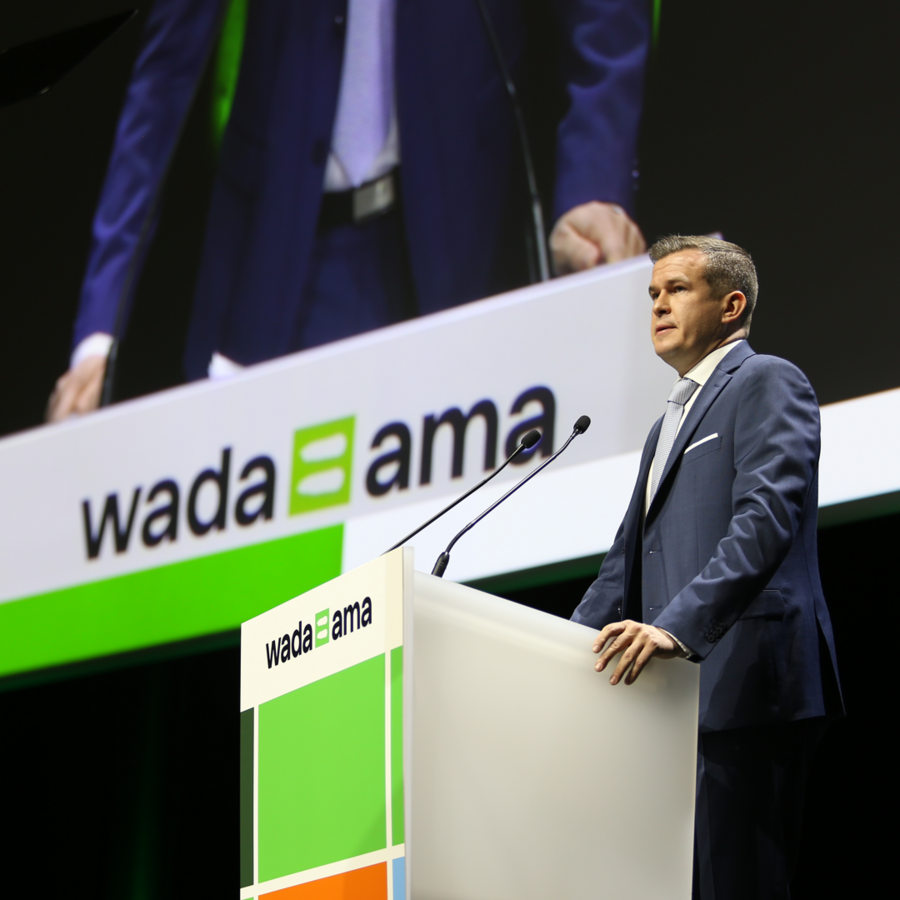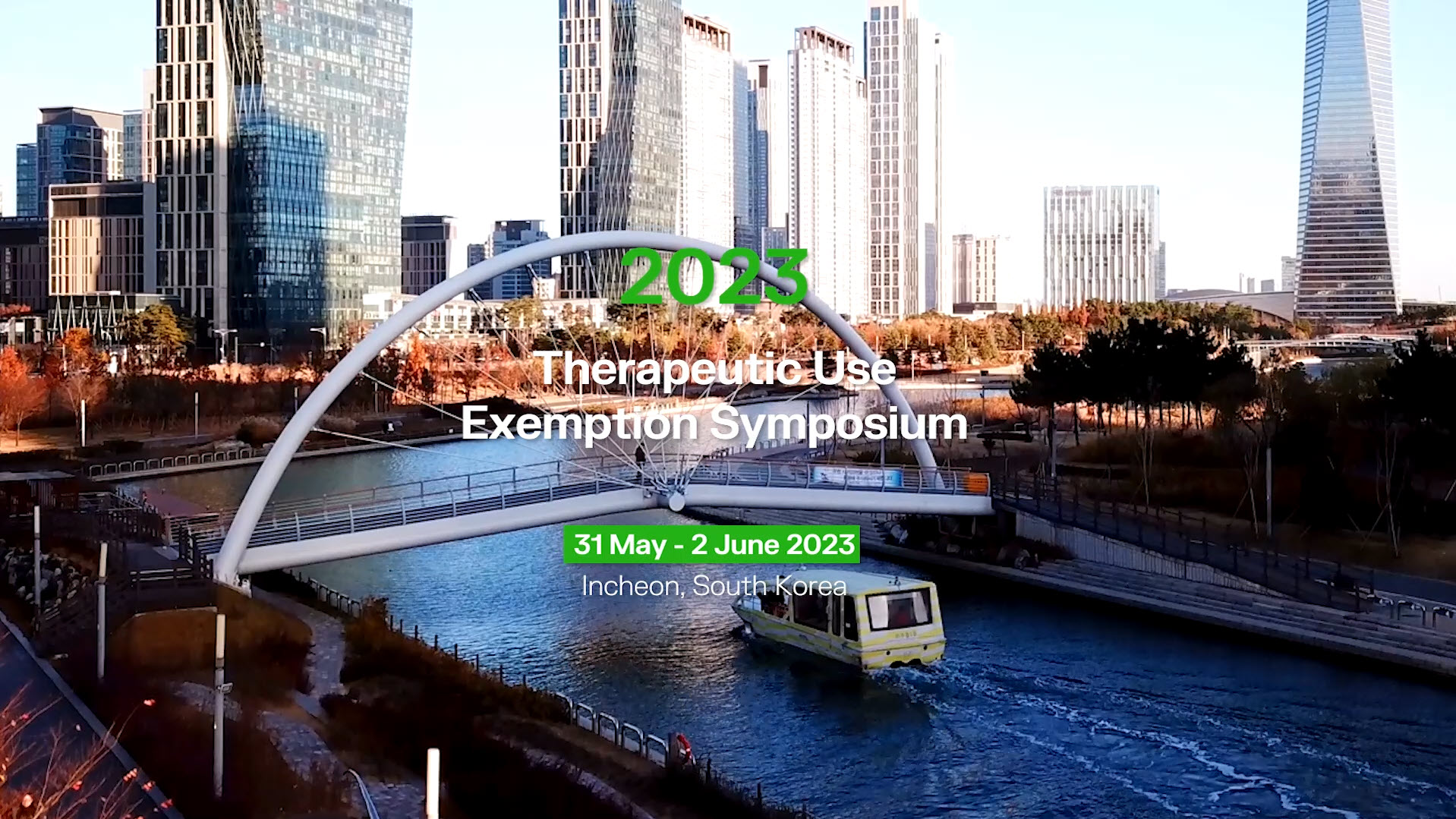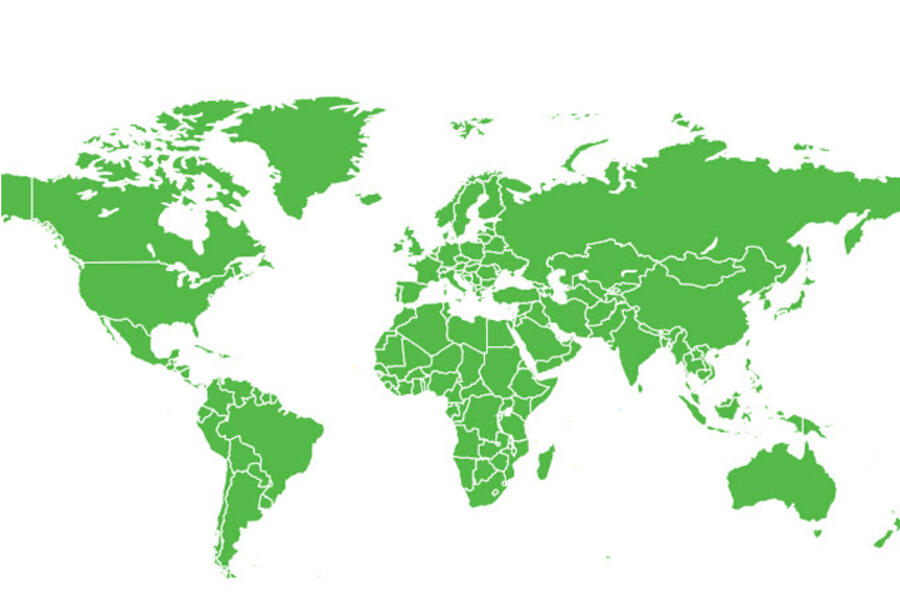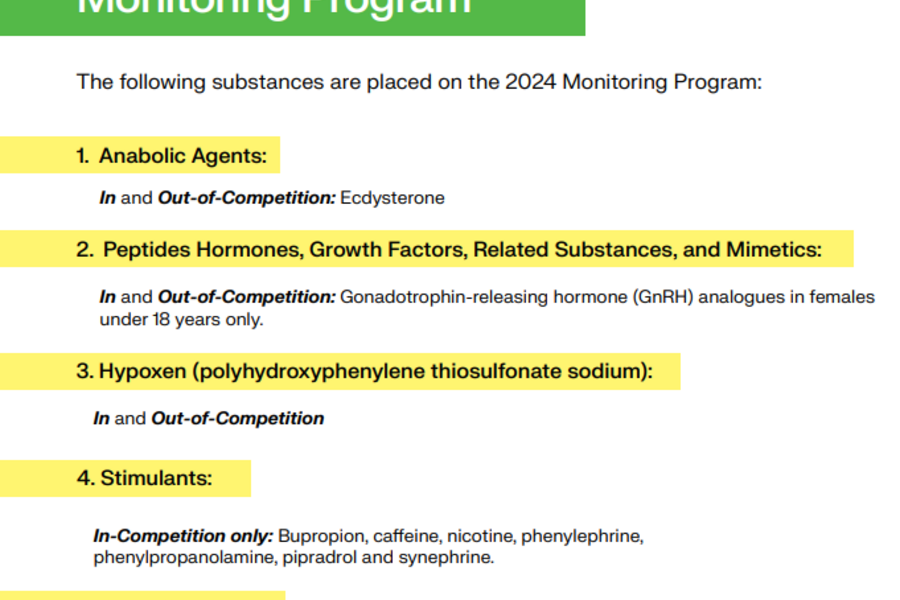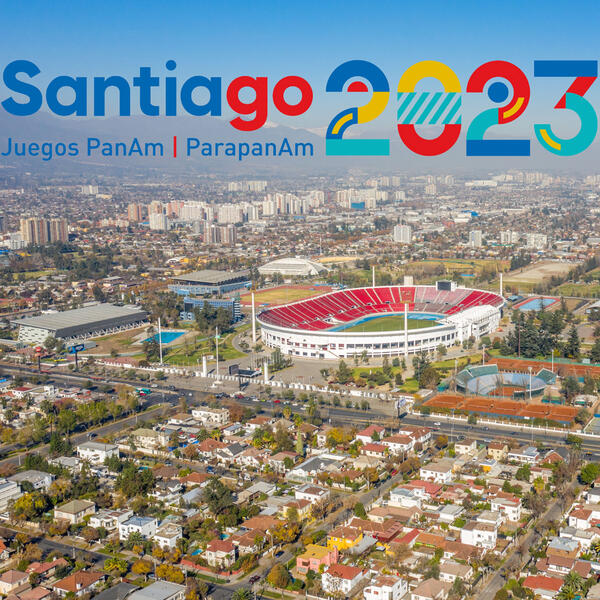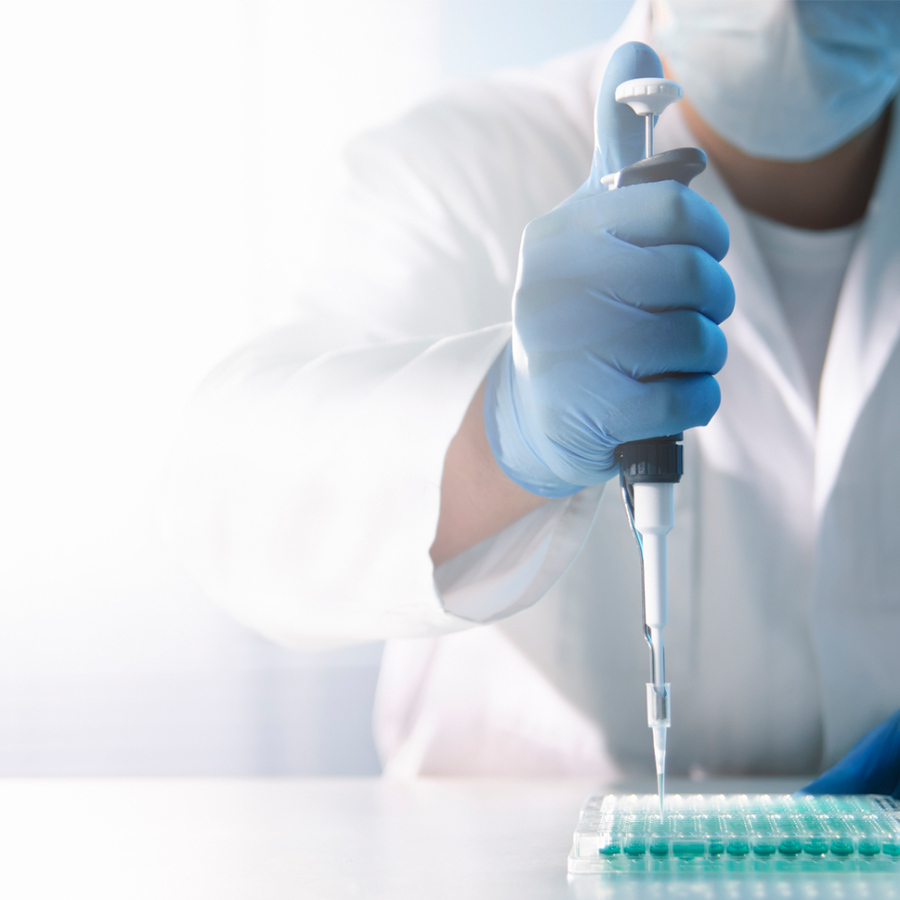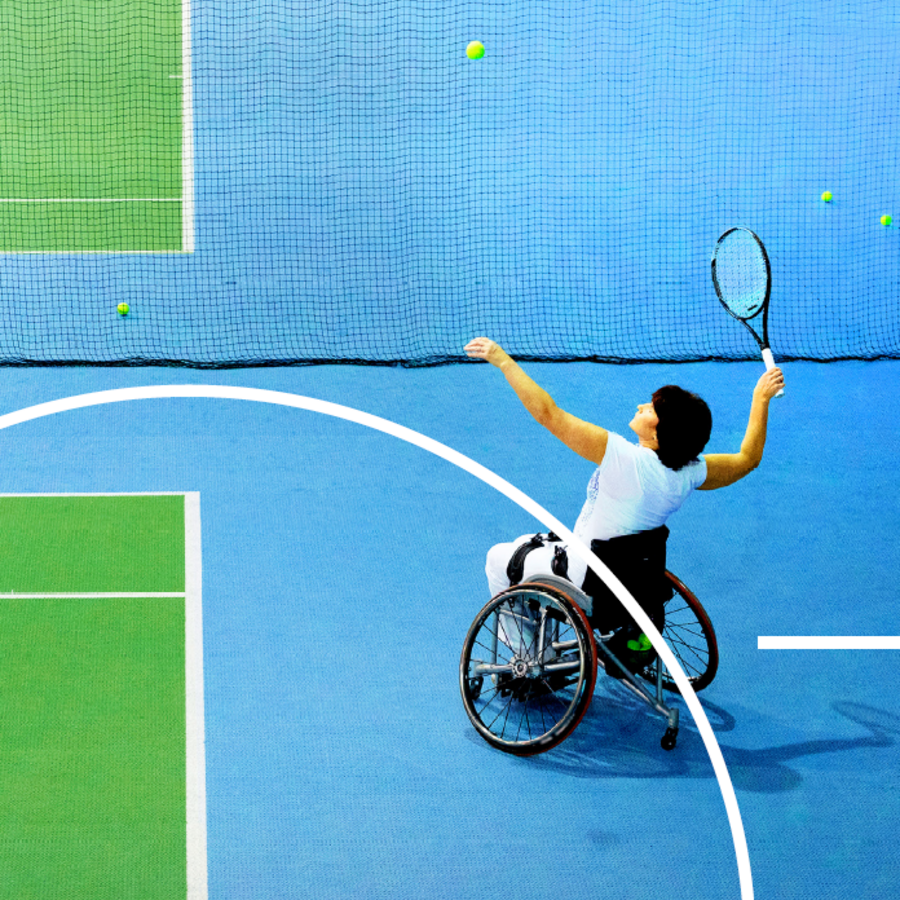Message from the President and Director General
Dear Colleagues,
Our Annual Report is an opportunity to provide you—our partners in clean sport—a high-level overview of the impact we are delivering together, recognizing your ongoing support and dedication as we unite toward a world of doping-free sport.
The report is structured around our Strategic Priorities, featured in bold, to showcase the ways in which our activities are informed by, and advancing, our 2020-2024 Strategic Plan.
Over the course of 2023, WADA:
- Further strengthened its ability to lead through completing its governance reforms and securing private funding to increase the future capacity for ADAMS development by 25%;
- Continued to grow impact by enhancing capacity and capability building and knowledge sharing between Anti-Doping Organizations and enabling local program delivery;
- Remained actively involved in its commitment to be athlete centered; and
- Facilitated meaningful engagement with and amongst all clean sport partners to fulfil its efforts to collaborate and unite.
2023 saw the full implementation of the governance reforms initiated in 2021, leading to enhanced representation for athletes and National Anti-Doping Organizations (NADOs) within WADA. This was achieved through the Athlete Council, which promotes the voices of athletes on anti-doping matters and serves as the avenue for athletes to assume positions on WADA’s Foundation Board, Executive Committee, and other Committees. It was also achieved through the NADO Expert Advisory Group, which brings the views of NADOs forward to WADA's governing bodies, reviews anti-doping matters impacting NADOs, and provides relevant guidance and recommendations to WADA to enhance collaboration with and development of NADOs globally.
2023 was also a busy year for our Athlete Engagement and Independent Observer (IO) programs. For the first time ever, all of our Athlete Engagement teams were athlete-led, and they were present at four sport events held in three different regions of the world. Three of those four sport events also had IO teams in place.
In March, we brought the anti-doping community together for our Annual Symposium in Lausanne, Switzerland. Once again hosted in a hybrid fashion, the Symposium was a valuable opportunity for information sharing, solidarity, and partnership, all of which are key to delivering on our mission to lead a collaborative worldwide movement for doping-free sport.
We were also pleased to stage our fifth International Therapeutic Use Exemption (TUE) Symposium in Incheon, South Korea in May/June, bringing together more than 250 participants. Medical and anti-doping experts, as well as TUE managers and administrators from around the world convened to discuss the challenges of harmonization of TUEs in a diverse world and to improve understanding of the complex processes that are in place to ensure fairness for all athletes.
2023 also saw achievements in many other important areas, including:
- Advancing anti-doping science and implementing strategic testing and technology;
- Progressing on development of evidence-based prevention strategies;
- Strengthening World Anti-Doping Code compliance monitoring of Signatories; and
- Expanding and reinforcing intelligence and investigations capacity of the global anti-doping system.
As WADA and the anti-doping community continue to evolve, we remain committed to engaging and empowering athletes and building anti-doping capacity as we are, together with our clean sport partners, united toward a world of doping-free sport.
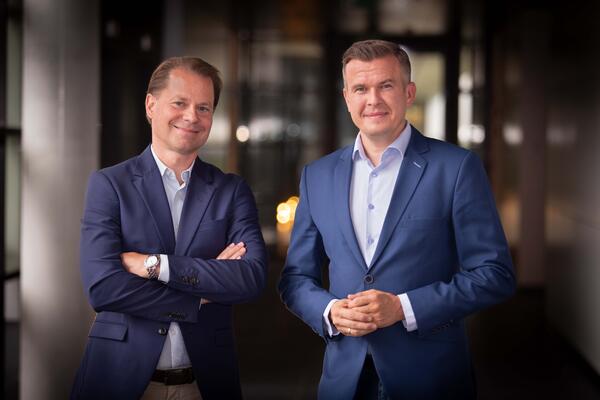
We thank you all for your commitment to clean sport.

Witold Bańka Olivier Niggli
President Director General
Other WADA Governance Bodies
In addition to the two decision-making bodies mentioned above, WADA’s Governance Structure also includes four other types of bodies: Permanent Special Committees, Standing Committees, Expert Advisory Groups, and Working Groups.
More information is available about each of these governance bodies on our website.
With the understanding that regional and gender diversity of our governance bodies is particularly important to our stakeholders, as indicated in 2022 by the Working Group on the Review of WADA Governance Reforms (Working Group) in its final report, we have begun collecting the corresponding data and are sharing it below to provide stakeholders with a greater sense of the overall composition of WADA’s governance bodies. This aligns with the recommendation from the Working Group that an analysis should be conducted regularly to ensure that an accurate picture of diversity across all WADA bodies is always available. The following data is aggregated from the abovementioned Committees and Groups as well as the ExCo and Board, as of 31 December 2023.
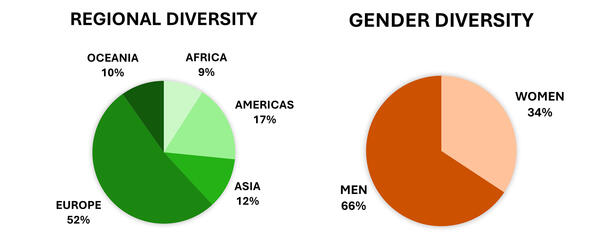
Management Team
The ExCo delegates the management of the Agency to the Director General, Olivier Niggli, who leads the Management Team. The Organizational Structure is available here.
WADA Overall Staff
Finally, we cannot fail to acknowledge the WADA Staff in its entirety.
At the end of 2023, WADA employed 187 people of 52 nationalities to carry out its day-to-day operations from its headquarters in Montreal, four regional offices in Cape Town, Lausanne, Montevideo, and Tokyo, as well as at the office of the President in Warsaw. Together the team collaborates with our global partners to protect clean sport and uphold the values of fair play.
We are committed to cultivating a culture of diversity, equity, and inclusion in our workplace and are pleased to share our gender and regional diversity data for our overall Staff, as of 31 December 2023.
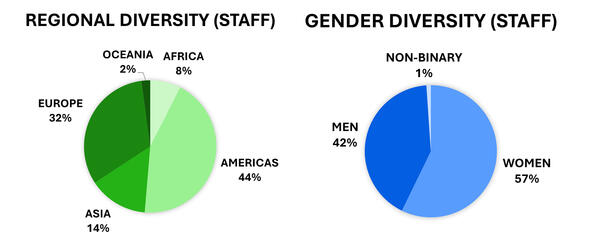
The Year in Numbers
For a third year, WADA has conducted a series of perception surveys and internal analysis to measure Key Performance Indicators (KPIs) under the strategic priorities of the 2020-2024 Strategic Plan. As the perception surveys are administered at the beginning of each year, the data from 2024, particularly when compared to that of 2023, provides insight on progress made over the course of 2023, making it ideal to reflect WADA’s KPI data for 2023 at a glance.
Click on the strategic priorities below to see the data and insights.
Perception of WADA
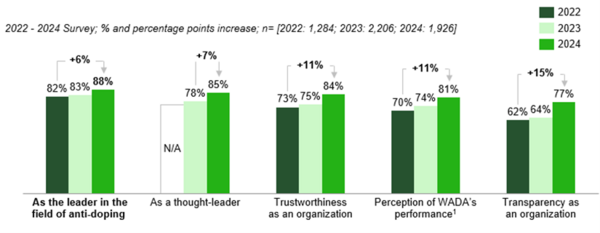
WADA Compliance Monitoring Program: Comparison of Code Compliance Questionnaire (CCQ) results (2017-2023)*
*Tier 1-3 Anti-Doping Organizations
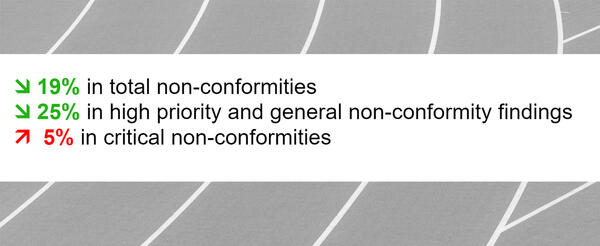
Anti-Doping personnel capability impact
- 160 practitioners from 96 Anti-Doping Organizations (ADOs) have undertaken trainings in line with the Professional Standards for specific roles.
- 87% trained ADO practitioners are confident to apply what they have learnt.
Distribution by type of organization
2024; %; n=96
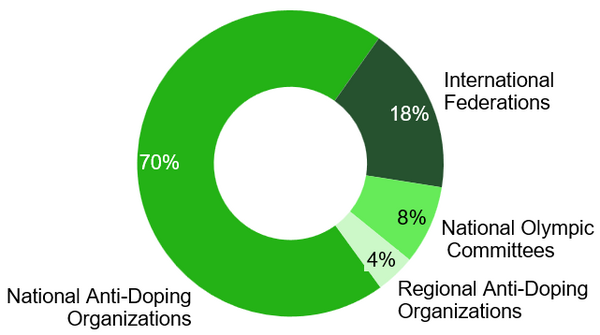
Athlete Engagement and satisfaction
85% of athletes believe WADA cares about their welfare (n=1,639)
Athlete perception towards WADA’s ability to be athlete-centric
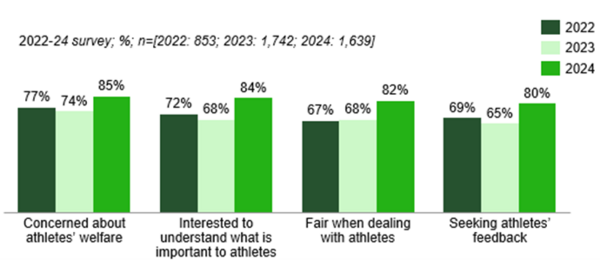
Athlete perception around doping
87% of athletes trust the system enables clean competition and fair play (n=1,639)
Athlete and athlete support personnel education impact
WADA’s Anti-Doping Education and Learning Platform (ADEL) saw an increase of 127% for additional completed courses. Growth is due to several courses and content becoming available in additional languages, including:
- Arabic
- Bahasa Indonesian
- Traditional Chinese
- Italian
- Japanese
69% of athletes feel confident they can apply what they have learnt.
Diversity and representation in governance
Since the 2022 governance reforms, the level of diversity and representation of WADA’s two decision-making bodies has increased:
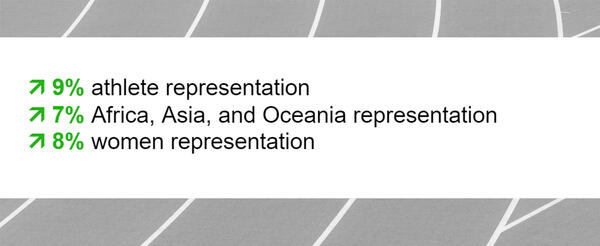
Lead
WADA is leading the collaborative worldwide movement for doping-free sport by remaining at the forefront of science and medicine, innovative testing and technology, governance, and education amongst other things. To guide the world toward a place where all athletes can participate in a doping-free sporting environment, WADA has also begun securing private funding to complement the annual budgetary contributions received from the Sport Movement and Governments of the world.
Cutting edge Science and Medicine
WADA continues to strengthen the development of anti-doping science and medicine to ensure effective implementation of the World Anti-Doping Code (Code) and its related International Standards.
Innovative scientific research helps address emerging challenges and identify new trends in doping, including new drugs, new delivery mechanisms, and new methods of detection. Since 2001, WADA has invested more than USD 90 million in more than 600 research projects, helping researchers around the world make breakthroughs in anti-doping science.
In 2023 alone, 36 publications stemmed from WADA-funded scientific research.
2023 Scientific Research Grant Program
In September, WADA’s Executive Committee (ExCo) approved funding recommendations for research proposals for the Agency’s 2023 call for scientific research grants. A total of 30 projects from 21 countries across four continents were selected for funding, amounting to USD 3.5 million.
New grant application process
WADA saw the need to overhaul the system to make the process more efficient and compatible with the realities of a fast-evolving field. To promote a more dynamic and attractive research program, in December 2023, WADA launched a new grant application process alongside its Call for Proposals for 2024 Scientific Research Grants. Under the new system, researchers are now welcome to submit Expressions of Interest at any time during the year.
Research filtering tool
In December, responding to stakeholder feedback, WADA launched an optimized filtering tool that allows researchers and stakeholders to search for scientific and social science WADA-funded projects based on research themes, researcher name, institution, country, year of approval, etc.
2023 was a milestone year for the Athlete Biological Passport (ABP) with the launch of the Endocrine Module and blood steroid markers in the Steroidal Module, and their collective launch within a new ABP interface in WADA’s Anti-Doping Administration and Management System [ADAMS] NextGen, as well as progress towards the ABP’s ability to detect sample swapping.
Endocrine Module
The launch of the new Endocrine Module brought with it the ability for the ABP to improve the detection of human growth hormone (hGH) and related compounds abuse. This new approach is more sensitive than the hGH Biomarkers Test and can be used to target samples for further analysis of hGH and ultimately better identify suspicious athletes for further scrutiny.
Blood steroid markers in the Steroidal Module
The new blood steroid markers, intended to be complementary to the existing urinary steroid profile, provide a more immediate temporal snapshot of steroid levels prior to metabolism and excretion in urine. This has helped identify normal blood steroid results in some cases of athletes with long-standing suspicious urine profiles, indicating that their urine data was most likely not due to doping, allowing Anti-Doping Organizations (ADOs) to focus their resources elsewhere.
Detection of sample swapping
The ABP’s ability to detect sample swapping (i.e., urine exchange) is being advanced by applying machine learning tools to develop an algorithm to flag abnormal samples. In 2023, the tool was optimized and in 2024, it will be applied as part of a pilot project to assess its impact in collaboration with ABP partners.
The Therapeutic Use Exemption (TUE) process is a means by which an athlete may obtain approval to use a prohibited substance or method for the treatment of a legitimate medical condition. The TUE process is a necessary part of elite sport and has overwhelming acceptance from athletes, physicians, and anti-doping stakeholders worldwide.
In 2023, a total of 3,744 new approved TUEs were registered in ADAMS, compared to 3,253 in 2022.
National Anti-Doping Organizations (NADOs) remain the most active ADOs in that field, entering 81% of all TUEs. International Federations (IFs) registered 17.5% of the total, Major Event Organizations (MEOs) registered 0.8%, and others (e.g., continental sports confederations) registered 0.9%. IFs and MEOs can recognize TUEs granted by other ADOs, rather than require new TUE applications.
Approved TUEs for S9 (glucocorticoids) on the Prohibited List remain the most common at 32% of the total, followed by S6 (Stimulants) at 31% and S4 (hormone and metabolic modulators) at 13%.
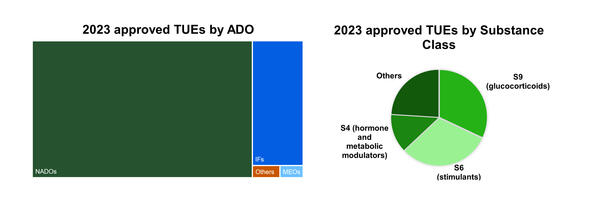
WADA screens all TUEs based on risk prioritization. In 2023, the Agency conducted 10 WADA TUE Committee reviews, which resulted in 7 TUEs not being granted.
Grow Impact
WADA’s ‘Grow Impact’ priority strives to expand the reach and impact of anti-doping programs by enhancing capacity and capability building and knowledge sharing between Anti-Doping Organizations (ADOs) and enabling local program delivery. Several teams across the Agency contribute to the work of this priority, including Education, Program Development, Intelligence and Investigations, National Anti-Doping Organization/Regional Anti-Doping Organization (NADO/RADO) Relations, and the Regional Offices.
Be Athlete Centered
Keeping athletes at the center of what we do is critical to ensuring that our decisions are made not just with athletes in mind but in collaboration and consultation with them. WADA’s ‘Be Athlete Centered’ priority of the Agency’s Strategic Plan involves:
- engaging and empowering athletes to contribute to the development of anti-doping policies;
- building an easier anti-doping journey for athletes; and
- gaining the trust and support of athletes in the anti-doping system.
In 2023, the reforms designed to enhance athlete representation within WADA’s governance were fully enacted. Athlete-centered projects such as the Athletes’ Anti-Doping Ombuds Program and the Initial Human Rights Impact Assessment were also underway, ensuring that athletes have a dedicated resource to help them navigate the anti-doping system and that anti-doping policy is examined through the lens of how it may impact and protect athletes’ human rights respectively. 2023 also saw the development of two new e-courses for athletes and meaningful athlete engagement at several major sports events.
Collaborate and Unite
WADA seeks to engage everyone involved in anti-doping, in particular Public Authorities and the Sport Movement, to increase unity, coherence, and support in everyone’s efforts to protect clean sport. WADA’s Stakeholder Engagement and Partnerships Impact Area, Sport Movement Relations Department, and Regional Offices are all instrumental to this work.
WADA also establishes strategic partnerships to strengthen the clean sport movement, hosts events to unite the global anti-doping community, and plays key roles in events organized by other anti-doping organizations and Governments.
At a governance level, collaboration is key. WADA’s many Committees, Expert Advisory Groups and Working Groups contribute significantly to the development of the anti-doping system. WADA is grateful to the members of each of these groups, all of whom graciously volunteer their time and expertise for the collaborative worldwide movement for doping-free sport.
Stakeholder Engagement
Members of WADA leadership, including President Witold Bańka, Vice-President Yang Yang, and Director General Olivier Niggli, frequently meet with government officials and sport leaders across the globe, both in bilateral meetings and multilateral forums. These meetings are key opportunities for exchange—for WADA to hear from its stakeholders about the anti-doping landscape in their region, the work they are conducting, and the challenges they are facing, as well as for WADA to update stakeholders on its activities and priorities. Above all, these are opportunities to promote the need for continued collaboration and harmonization of anti-doping rules, policies, and regulations between Governments and sport leaders worldwide and for stakeholders to strengthen their commitment to protecting clean sport.
Other symposia, summits, and seminars
Over the course of the year, WADA also played important roles in other anti-doping symposia, summits, and seminars in Europe and Asia. These events all provided opportunities for anti-doping communities in different regions to gather, collaborate, build new relationships, forge new connections and strengthen existing ones; and of course, to renew commitments to clean sport:
World Anti-Doping Program
The backbone of our work is the World Anti-Doping Program, which is comprised of the World Anti-Doping Code (Code), International Standards (Standards), and Guidelines, which together ensure harmonization and best practice. These are all living documents and thus are updated as needed in consultation with stakeholders. In turn, as the global regulatory body for anti-doping in sport, WADA is responsible for monitoring effective implementation of and compliance with the Code and Standards by Code Signatories and also for ensuring global harmonization of sanctions and equal treatment for athletes.
List of Prohibited Substances and Methods
In September 2023, following our usual, extensive stakeholder consultation process with some of the most qualified experts in the fields of science and medicine from around the world, WADA’s Executive Committee (ExCo) approved the 2024 List of Prohibited Substances and Methods (List). The List was then published on 28 September, along with the 2024 Summary of Major Modifications and Explanatory Notes and the 2024 Monitoring Program. As is customary, the new List came into effect 1 January 2024.
Guidelines, Technical Documents + Letters, Code and Standards Update
Guidelines provide Signatories with recommended practices for several aspects of anti-doping. These Guidelines are not mandatory, but they offer technical guidance to Anti-Doping Organizations (ADOs) in the implementation of programs. As with the Code and Standards, the Guidelines are subject to ongoing review and reassessment.
Athlete Biological Passport (ABP) Guidelines
In 2023, WADA published new Athlete Biological Passport (ABP) Guidelines, which have been updated to incorporate the Endocrine Module and new markers of the Steroidal Module measured in blood, both of which were introduced alongside the launch of the ADAMS Next Gen ABP Module in August 2023. Related to these updates, we also published two new Laboratory Guidelines regarding the Analytical Testing Procedures used to quantify markers for the Endocrine Module and for quantification of steroid markers in blood (serum) samples.
Guidelines for Human Source Management
WADA also published new Guidelines for Human Source Management, which serve as a model of best practice for the management of Human Sources by ADOs. WADA Intelligence and Investigations (I&I) produced these Guidelines to support ADOs in the development and management of Human Source programs. The Guidelines, which feature fundamental principles and best practices, are part of WADA’s ongoing work to better educate ADOs on important investigative methodologies and practices in this important area.
Under the International Standard for Laboratories (ISL), WADA issues Technical Documents (TDs) and Technical Letters (TLs) to provide direction to WADA-accredited laboratories, WADA-approved laboratories for the Athlete Biological Passport (ABP), and other stakeholders. TDs provide direction on specific technical or procedural issues whereas TLs provide direction on particular issues on the analysis, interpretation, and reporting of results or on the application of specific laboratory procedures. The implementation of the requirements of TDs and TLs is mandatory for obtaining and maintaining WADA accreditation or approval as applicable.
In 2023, WADA published updated versions of the following two TDs and one TL:
In September 2023, WADA launched the first phase of the 2027 World Anti-Doping Code and International Standards Update Process (2027 Code and IS Update Process).
This two-year, multi-phase process is summarized in the 2027 Code and IS Update Process – Timelines & Key Phases document and corresponding webinar presentation and is also outlined below:
- Consideration of stakeholders’ feedback on the Code and Standards;
- Circulation of drafts of proposed amendments to the Code and Standards;
- Final versions of the Code and Standards presented for consideration and approval at the sixth World Conference on Doping in Sport, to be held in December 2025 in Busan, Republic of Korea; and
- Updated 2027 Code and Standards, entering into effect on 1 January 2027.
More information regarding the 2027 Code and IS Update Process is available on our Code Review webpage.
Compliance
As the global regulatory body for anti-doping in sports, one of WADA’s primary roles is to monitor Code Signatories’ compliance with the Code and Standards. WADA does this through its Compliance Monitoring Program, comprised of the Code Compliance Questionnaire (CCQ); Program Area Monitoring; audits; and reviews of anti-doping rules, regulations, and national legislation.
In 2023, around 300 Signatories received support or were assessed by one or more of our compliance monitoring programs as follows:
- The CCQ project required International Federations (IFs) and National Anti-Doping Organizations (NADOs) to report on their adherence to the 2021 Code and Standards, which was the second year of the initiative. All Tier 1, 2, and 3 IFs and NADOs had received their CCQ by the end of 2023, and 171 Corrective Action Reports (CARs) had been issued.
- WADA conducted 10 audits during the year.
- WADA started to roll out its Program Area Monitoring program with a pilot group of 21 Signatories.
- WADA received 333 sets of rules and/or legislation to review from 97 Code Signatories.
The panels that follow provide some of the key findings drawn from the Compliance Monitoring Program in 2023.
- Despite an increase in the number of requirements in the 2021 Code and Standards, 19% fewer non-conformities were identified in the 2022/3 CCQ compared to the 2017 CCQ for the same Signatories. However, critical non-conformities increased by 5%.
- Education was the largest source of non-conformities for IFs (reflecting the recent publication of the new International Standard for Education in 2021) and represented 34% of all non-conformities for IFs.
- Signatories audited in between the 2017 and 2022/23 CCQ recorded 77% fewer non-conformities in 2022/3.
- NADOs recorded their highest average number of non-conformities per CAR (33.6), largely because four of the seven NADOs audited were from Tier 2.
- IFs recorded on average 11.7 non-conformities per CAR which was the lowest average compared with previous years.
A new pilot program for program area monitoring was launched. Of the 21 Signatories monitored, two CARs were issued. Of the 13 non-conformities identified, nine related to testing.
- Compared to 2022, there was a 26% increase in the number of anti-doping rules, and in some cases national legislation, received for review by WADA.
- New or amended national legislation was submitted by 25 countries to WADA for review to ensure compliance with the Code.
- Testing continues to generate the greatest number of non-conformities across Signatories, with 30% being critical in nature.
- A Program Development Testing Project was established and will continue to support Signatories in improving their Testing programs throughout 2024.
- Resources available to Signatories remain a challenge, with 35% of Signatories from the CCQ and two Signatories audited in 2023 receiving a critical non-conformity because they required additional resources to meet the requirements of the Code and Standards.
- Signatory satisfaction with WADA’s Compliance Monitoring Program as measured by CCQ and audit feedback remains high.
- In 2023, 108 compliance procedures for 88 Signatories were opened, 80% originating from the CCQ exercise. Despite the high number of compliance procedures opened, one positive trend was that the majority of compliance procedures (82%) were resolved before the case reached the Compliance Review Committee (CRC). This has been achieved through coordinated and targeted support from WADA departments and Regional Departments to assist and support Signatories in compliance procedures.
- The ExCo endorsed 16 recommendations from the CRC.
- Throughout the year, 11 Signatories were placed on the “watchlist”.
- Two Signatories were declared non-compliant: the Olympic Council of Asia (OCA) and the Gabon NADO. At the end of 2023, five Signatories were non-compliant: the NADOs of the Democratic People’s Republic of Korea (DPRK)*, Gabon*, and Russia; the International Federation for Fitness and Bodybuilding; and the OCA*.
- Four NADOs appealed their non-compliance outcome to the Court of Arbitration for Sport (CAS): Russia, South Africa, Nigeria and Venezuela. These represent the first CAS cases linked to audits and the CCQ.
*Note: the NADOs of the DPRK and Gabon as well as the OCA were reinstated in early 2024.
Summary
Identifying trends and comparisons from year to year is a challenge because annual compliance monitoring programs vary. However, in 2023, there is evidence that the maturity of the anti-doping system is increasing, although compliance by all Signatories is still not ‘business-as-usual’. WADA continues to require compliance measures to verify and monitor Signatory compliance, and deadlines have proven effective in encouraging Signatories to take the necessary actions.
Independent Observer program
WADA’s Independent Observer (IO) program, which complements the Compliance Monitoring Program of Major Event Organizations, helps enhance athlete and public confidence at major sporting events by monitoring and reporting on all phases of the doping control and results management processes.
In 2023, WADA’s IO program was present at:
Results Management
WADA reviews all decisions rendered by Signatories worldwide, and files appeals where appropriate to ensure global harmonization of the sanctions and an equal treatment for athletes, regardless of where they come from or what sport they compete in. In 2023, WADA filed 30 appeals.
In May 2023, WADA published its 2020 Anti-Doping Rule Violations (ADRVs) Report, a set of statistics that illustrates the outcomes of Adverse Analytical Findings (AAFs) resulting from samples collected in 2020 as well as non-analytical cases for which a decision was issued in 2020. This report complements the 2020 Testing Figures Report published in December 2021.
Key information provided in the 2020 ADRVs Report includes:
-

149 758 149,758 samples collected
-

935 935 ADRVs recorded (25 of which are related to Athlete Support Personnel), involving individuals from 91 nationalities across 67 sports
-

672 672 ADRVs came from AAFs
-

263 263 ADRVs came from non-analytical, evidence-based intelligence.
The proportion of ADRVs confirmed to samples collected remained stable as compared to 2019 despite the drop in the number of samples collected in 2020 as a result of COVID-19.
Comparisons with 2018 and 2019 are listed in the table below.
|
|
Total Samples |
Total ADRVs |
Nationalities |
Sports |
ADRVs Coming from AAFs |
Non-Analytical ADRVs |
|
2020 |
149,758 |
935 |
91 |
67 |
672 |
263 |
|
2019 |
278,047 |
1,914 |
117 |
89 |
1,537 |
377 |
|
2018 |
263,519 |
1,923 |
117 |
92 |
1,640 |
283 |
RUSADA
The two-year period of consequences contained in the CAS decision regarding RUSADA’s non-compliance came to an end on 17 December 2022. Since then, WADA has been monitoring the progress being made by RUSADA as it seeks to satisfy the conditions of reinstatement as laid out by the CAS decision. In the meantime, RUSADA remains non-compliant with the Code.
Separately, a fresh critical non-conformity was identified related to inconsistencies between the federal Russian sports legislation and the Code. At its meeting on 22 September 2023, the ExCo accepted the CRC’s recommendation to impose on RUSADA new consequences and reinstatement conditions. On that date, WADA sent RUSADA a formal notice specifying the relevant consequences and reinstatement conditions. RUSADA subsequently disputed WADA’s allegation of non-compliance, as well as the consequences and reinstatement conditions. Accordingly, WADA has recently filed a formal notice of dispute with CAS.
Meanwhile, WADA’s Operation LIMS investigation into the data and samples retrieved by WADA Intelligence and Investigations from the Moscow Anti-Doping Laboratory in 2019 continues to be successful. As a sign of that success, the number of athletes who have now been sanctioned as part of this project has reached the 253 milestone, with an additional 32 charged and 94 cases that remain under investigation.

